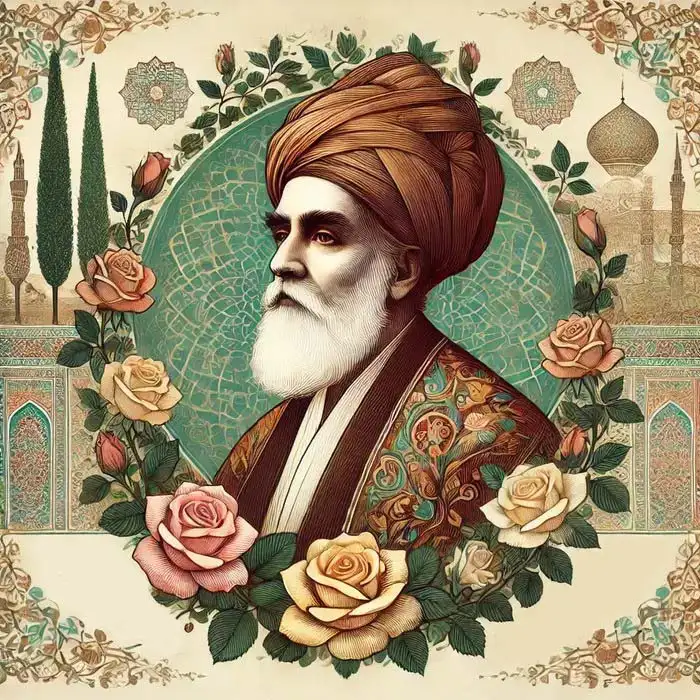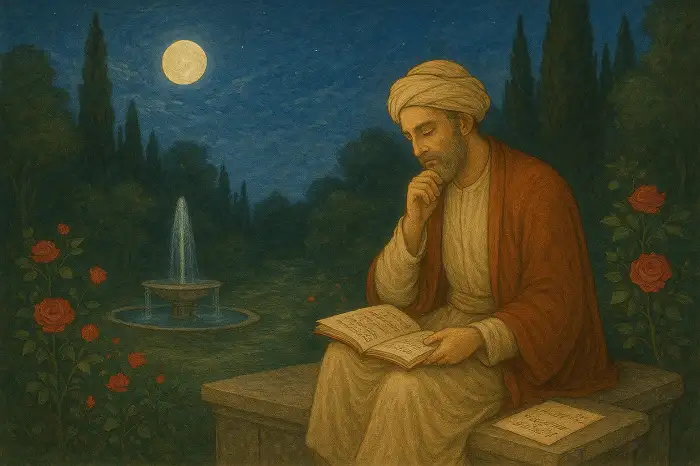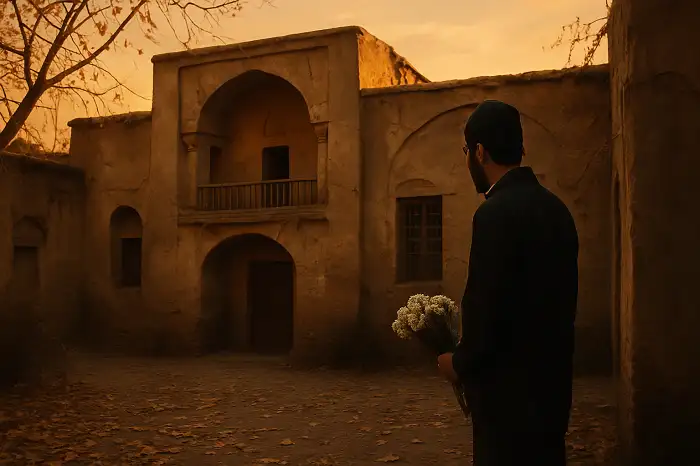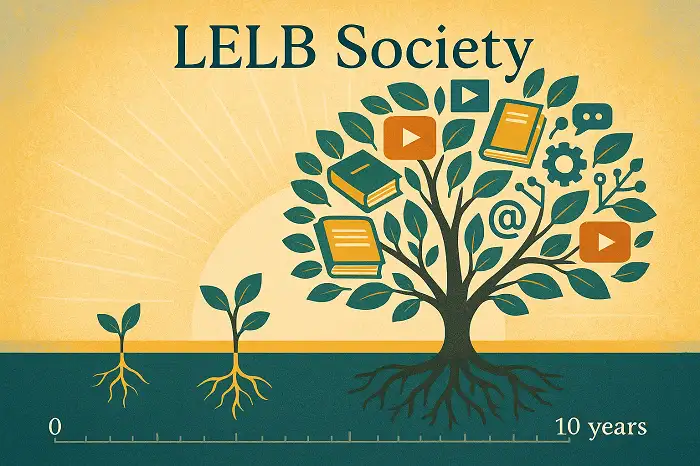Hafiz Shirazi, one of the most celebrated poets in Persian literature, offers a rich tapestry of imagery, emotion, and wisdom in his works. In this lesson, we delve into one of his renowned poems, presenting it alongside its English translation and phonetic transcription. This approach aims to guide non-Persian speakers in navigating the intricacies of the language, while offering insights into Persian culture through the lens of poetry. Video of Heartfelt Verse by Hafiz Shirazi https://www.youtube.com/watch?v=aQUdoe99708 Heartfelt Verse by Hafiz Shirazi 1. دل میرود ز دستم، صاحبدلان خدا را Del mi-ravad ze dastam, saheb-delan khoda ra My heart slips out ...
Home » Learn Persian Online with 500 Persian Lessons + Videos » Heartfelt Verses by Hafiz Shirazi: A Timeless Persian Sonnet

Heartfelt Verses by Hafiz Shirazi: A Timeless Persian Sonnet
Updated: by Dr. Mohammad Hossein Hariri Asl
Time to Read: 11 minutes | 420 Views | 2 Comments on Heartfelt Verses by Hafiz Shirazi: A Timeless Persian Sonnet
Share This Post
About the Author
Dr. Mohammad Hossein Hariri Asl is an English and Persian instructor, educator, researcher, inventor, published author, blogger, SEO expert, website developer, entrepreneur, and the creator of LELB Society. He's got a PhD in TEFL (Teaching English as a Foreign Language).
Number of Posts: 4242



حافظ شیرازی یک شاعر بسیار معروفی در ادبیات فارسی است و برای من خیلی جالب بود شعر های زیبای او را بخوانم. شعر های حافظ نیز در جشن باستان ایرانی شب یلدا روحانی پیدا می کنند. این اهمیت حافظ را در فرهنگ ایرانی تایید می کند.
خوشحالم المیرا که می توانید شعرهای زیبای حافظ شیرازی را بخوانید و از آنها لذت ببرید. اشعار حافظ هم بسیار زیبا و آهنگین هستند و هم معنای والا و ارزشمندی دارند. بهتر است جمله زیر را به این شکل بنویسید:
شعر های حافظ نیز در جشن باستان ایرانی شب یلدا روحانی پیدا می کنند = شعر های حافظ نیز در جشن باستان ایرانی شب یلدا یک فضای روحانی ایجاد می کنند.